Early childhood political and pedagogical landscape in the UK
Posted on: April 24, 2024by Ben Nancholas

Early childhood education and care (ECEC) refers to the UK government’s provision and funding of education and childcare provided in regulated settings – such as nursery schools, early learning centres, day care providers, and children’s centres – from birth to the start of primary school.
High-quality ECEC can have a positive impact on children’s cognitive development and their socio-emotional, behavioural, and educational outcomes, in both the short and long term. It helps to promote school readiness, raise attainment levels, close the learning outcomes gap between disadvantaged children and other children, and pave the way for lifelong learning.
ECEC in England is however facing a number of critical challenges – none of which have been helped by the COVID-19 pandemic.
- Early years providers are closing at an alarming rate, linked to budget cuts and rising operational costs.
- Recruitment challenges plague the sector – including childminders.
- Parents and carers are struggling to meet the rising costs of childcare which, increasingly, represents a large proportion of a family’s net income.
- Children are suffering from an inconsistency of education and care.
If these challenges are not meaningfully addressed, and effective early intervention in child outcomes and education is not prioritised, children’s learning opportunities – and the development of children on a broader scale – will continue to suffer.
How have young children’s lives changed in recent years?
Over the last 25 years, the context in which ECEC is provided has undergone significant change, linked to sector growth and more universal provision – which has had knock-on effects on the lives of children throughout the UK.
‘The Changing Face of Early Childhood in the UK’, a series of studies funded by the Nuffield Foundation, found that two key themes related to young children: the changing nature of family life and family structures and the implications this has on economic security, development and wellbeing, and inequalities between children and young people. ECEC, which is central to these themes, must deliver on the grounds of quality, effectiveness, and sustainability.
The studies share the following key learnings.
- Almost all children now experience some combination of informal and formal ECEC well before they start school.
- Despite significant investment, there is no national coherent vision for ECEC.
- Inequalities exist in terms of access, take-up, and outcomes.
- Despite significant growth in the number of children accessing ECEC in recent years, successive governments have struggled to resolve the trade-off between quantity and quality of education and care.
- The quality of the ECEC workforce is key to improving outcomes for young children.
Fragmented structures, concerning geographical variations, shifts in education policy and practice, and a lack of understanding of what is happening in certain communities, necessitate a whole-system review by policymakers, local authorities, and other relevant stakeholders.
What is the UK government’s current stance on early childhood education and care?
The Department for Education (DfE) reports that, by 2028, the government expects to spend in excess of £8 billion every year to fund 30 hours of free childcare per week for children over the age of nine months. This additional spending ‘represents the single biggest investment in childcare in England ever’.
These policy changes related to early years provision aim to empower parents and allow them to focus on their careers, alongside supporting their young families. The new entitlements are due to be introduced in phases:
- From April 2024, all working parents of two-year-olds can access 15 hours of free childcare per week.
- From September 2024, all working parents of children aged nine months up to three-years-old can access 15 hours of free childcare per week.
- From September 2025, all working parents of children aged nine months up to three-years-old can access 30 hours of free childcare per week.
While this investment is very much welcome, structural reforms and initiatives are still required within the ECEC system if implementation is to be truly effective. Funding distribution and sustainability, in particular, could disproportionately affect parents and children living in disadvantaged areas – a specific problem when it is this demographic of children who can most benefit from effective ECEC. As well as a critical educational concern, it’s also a social justice issue.
What are the main pedagogical approaches in early childhood education?
Can certain pedagogical practices better stimulate early childhood development? How is the English education system and early childhood care faring in terms of its pedagogical approach?
England’s pedagogical approach to early and preschool education emphasises age-appropriateness and play-based learning, and encourages the flexible use of different, complementary approaches and practices. It focuses on continuous child development that spans ECEC and beyond, and features favourable staff ratios. In fact, England’s staff-child ratio of 1:8 to 1:13 for preschool children aged three and older (depending on staff qualifications) is better than the OECD average.
The main pedagogical approaches in early years education include:
- Play-based approach. Learning through play enables children to make sense of the world and actively engage with people, objects, and ideas. Play allows them to take the lead, make their own decisions in a safe environment (where there are no wrong answers or repercussions), and make mistakes. It often includes role play, imaginative play, small-world play, and exploratory, physical play.
- Theme-based approach. This approach organises play and learning activities – spanning all subjects and skills – around a specific topic or curricular theme. For example, popular themes in early years settings include ‘minibeasts’, ‘the rainforest’, ‘similarities and differences’, and ‘under the sea’.
- Activity-based approach. Activity-focused learning aims to teach learners skills and knowledge through creative activities and tasks (for example, key literacy and numeracy skills), enabling them to absorb information and develop their confidence and capabilities in engaging, active ways.
- Project/inquiry-based approach. Children are encouraged to create real-world connections through exploration, experiential learning, problem-solving and questioning. It centres children in the learning process and fosters innate curiosity.
The four nations of the UK (England, Northern Ireland, Scotland, and Wales) have distinct policy and curricula in relation to ECEC. For those interested, ‘Understanding Early Years Education across the UK’ (Routledge, 2016, London/New York) explores UK-wide comparisons in terms of social, pedagogical and policy contexts.
Champion accessible, affordable and transformative early childhood development
Are you passionate about improving young children’s experiences and outcomes? Want to improve the quality of ECEC before children begin formal primary education?
Choose a career-focused, 100% online master’s designed to help you excel in educational practice, with North Wales Management School’s online MA Education with Early Childhood programme.
Develop an in-depth understanding of educational theory and practice, focused specifically on foundation stage learning environments and early childhood experiences and contexts. You’ll explore how educational research, theory, policy, and practical application intersect with professional and cultural contexts, enhancing your own educational role and professional development. You’ll gain deep insight into current issues and challenges facing the sector through a range of highly flexible, engaging topics: inclusive practice and supporting children with learning disabilities, early child development, contemporary early childhood issues, wellbeing and resilience, mentoring and coaching, public policy developments, educational technologies, and critical pedagogy.




